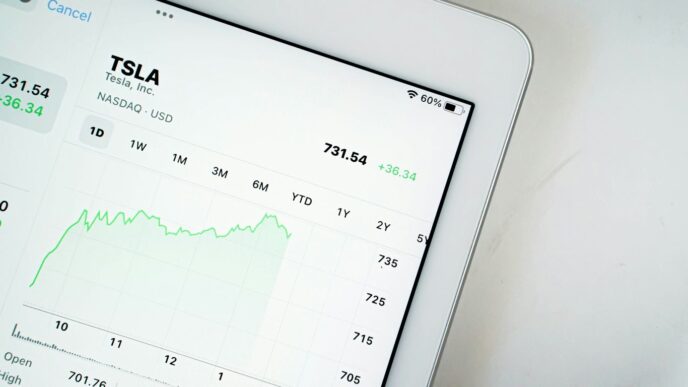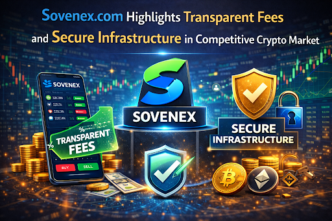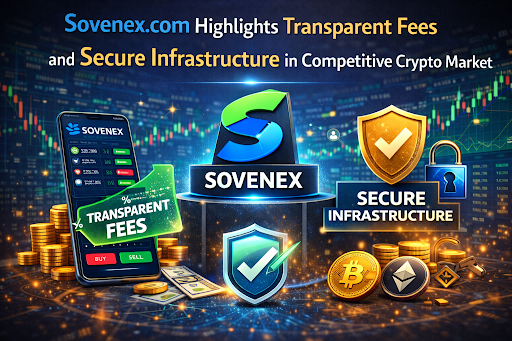So, the big news is that Epic Games and Google have finally settled their massive legal fight. This whole thing started because Epic wasn’t happy with how Google runs its app store and how it handles payments. Remember when Fortnite got kicked off the Play Store? That was the beginning of it all. Now, after a long back-and-forth, including jury verdicts and appeals, they’ve reached an agreement. It looks like this could really change how apps get onto Android phones and how we pay for them. It’s a pretty big deal for developers and, honestly, for us users too.
Key Takeaways
- The epic games v google legal battle has concluded with a settlement, aiming to make the Android app market more open.
- A jury previously ruled that Google’s app store practices were illegal, establishing a monopoly.
- Google will now allow more third-party app stores and alternative payment options on Android devices.
- This resolution could lead to more choices and potentially lower prices for consumers and developers.
- The outcome sets a precedent for how app stores operate and could influence future tech industry regulations.
The Genesis Of The Epic Games V Google Antitrust Battle
Epic Games Challenges Google’s App Store Dominance
So, this whole mess really kicked off because Epic Games, the folks behind Fortnite, decided they weren’t happy with how Google was running things with its Play Store. Basically, Google had this system where if you wanted to sell apps or sell things inside apps on Android phones, you pretty much had to go through their store and use their payment system. And, surprise, surprise, Google took a cut of all that money – usually around 30%. Epic thought this was totally unfair and a big reason why it was hard for other app stores and payment methods to even get a look-in. They felt Google was using its power to keep competition out.
Fortnite’s Removal From The Play Store
Things really heated up in 2020. Epic tried to get around Google’s rules by letting players buy V-Bucks, the in-game currency for Fortnite, directly from Epic at a lower price. They even put a special code into the game to make this happen. Google, not surprisingly, was not pleased. They saw this as a direct violation of their terms of service. So, what did they do? They booted Fortnite right off the Google Play Store. This wasn’t just a small disagreement; it was the spark that lit the wildfire, leading directly to Epic suing Google.
The Roots Of The Conflict
At its core, this fight is about control and money in the booming app market. Google has made Android an open-source operating system, which sounds great, but they’ve also built a pretty tight grip around how apps get onto those phones through the Play Store. Epic argued that this setup wasn’t just a business practice; it was an illegal monopoly. They pointed to things like Google’s deals with phone makers to make sure the Play Store was the default, and how they paid big game developers to keep their apps exclusive to Google’s store. Epic believed Google was actively stifling innovation and choice to protect its own massive profits. It all boils down to whether a company with such a dominant platform can dictate the terms for everyone else trying to do business on it.
Key Rulings In The Epic Games V Google Lawsuit
So, after all the back and forth, the courts started handing down some pretty big decisions. It wasn’t just one thing, either; there were a few major moments that really shaped how this whole thing would play out.
Jury Verdict Finds Google’s Monopoly Illegal
First off, a jury looked at all the evidence and decided that Google was, in fact, running an illegal monopoly. This wasn’t just about one part of their business, either. They found Google guilty on two fronts: how they distribute apps on Android and how they handle payments within those apps. This jury verdict was a huge win for Epic and set the stage for what came next. It meant that the core of Google’s Play Store model was seen as anti-competitive by a group of everyday people, which is pretty significant.
Ninth Circuit Affirms Antitrust Violations
Google, naturally, wasn’t happy and tried to appeal. But the Ninth Circuit Court of Appeals basically said, ‘Nope, the jury got it right.’ They looked at Google’s arguments, including claims that the market definition was wrong and that the trial should have been split up differently. The appeals court shot down all of Google’s points. They agreed that Google’s practices, like making deals with developers to keep them exclusive to the Play Store and forcing developers to use Google Play Billing, were indeed illegal. This ruling was a big deal because it upheld the jury’s decision and made the consequences for Google much more real.
Court Mandates Opening Android To Third-Party Stores
Following the appeals court’s decision, the court laid down some pretty strict rules. Google was told they had to make some serious changes to how the Android app ecosystem works. This included:
- Allowing other app stores to be distributed through the Google Play Store itself.
- Ending the requirement that developers must use Google’s own payment system, Google Play Billing.
- Stopping deals that pay developers to keep their apps exclusive to the Play Store or launch there first.
Essentially, the court mandated a more open system for Android, which was a direct challenge to Google’s long-standing business model. They even set up a committee to help sort out the details of how all this would actually get implemented, which shows how serious the court was about these changes.
Google’s Legal Challenges And Appeals
Google’s Appeal To The Ninth Circuit
After the initial verdict, Google wasn’t exactly thrilled, and they decided to take their fight to the Ninth Circuit Court of Appeals. They really dug in, bringing up a few main points. One big one was about how the market was defined. Google argued that a previous case involving Epic and Apple had already set a market definition, and this jury went and defined it differently for Android app distribution and in-app billing. They felt this was a mistake. They also thought the trial should have been split up – like, try the antitrust stuff separately from their own claims against Epic for breaking their contract. It just seemed like too much all at once to Google.
Arguments Against The Injunction
Beyond the trial itself, Google really took issue with the injunction that the court put in place. They claimed it was too vague, making it hard to know exactly what they were supposed to do to comply. They even tried to argue that a special committee set up to help sort out the details was also too unclear. The court, however, pretty much said, "Nope, it’s clear enough." They felt Google knew what was expected and that the committee was actually a helpful way to iron out the finer points, which isn’t that unusual in these kinds of cases. Google also tried to say the injunction forced them to create new products or services for their competitors, which they shouldn’t have to do. But the court pushed back, saying Google was just being asked to share existing data and resources, not build anything from scratch. They even pointed out that the cost for Google to do this was pretty small, under a million bucks, so that wasn’t a good enough reason to throw out the whole order. Plus, they gave Google a decent amount of time, eight months, to get it done.
Supreme Court Denial Of Delay
While the Ninth Circuit was reviewing things, Google tried to get a pause on the injunction, hoping the Supreme Court might step in. They wanted to delay the implementation of the court’s orders. However, the Supreme Court ultimately decided not to get involved in delaying the process, letting the Ninth Circuit’s decision stand for the time being. This meant Google had to start working on the changes required by the injunction while their broader appeal continued.
The Landmark Settlement In Epic Games V Google
Reforms To Play Store Practices
So, after all that courtroom back-and-forth, Google and Epic Games finally decided to settle things. It’s a pretty big deal for how apps get onto Android phones. Basically, Google agreed to change up how its Play Store works. This means developers might not have to pay those hefty fees they used to, and they’ll have more freedom in how they handle payments. It’s like they’re trying to make the whole system a bit more fair for the folks making the apps.
Allowing Alternative App Stores And Payments
One of the biggest parts of this settlement is that Google has to let other app stores onto the Play Store. Think of it like opening up a shopping mall to more than just one big department store. This gives people more choices for where they get their apps from. Plus, developers can now use their own payment systems or other third-party options, which could mean cheaper prices for us consumers because they won’t have to pay Google’s cut. It’s a move towards a more open Android.
A Comprehensive Solution For Android Openness
This whole agreement is being called a pretty solid fix for making Android more open. It’s not just about one game or one company; it’s about the whole app ecosystem. By allowing more competition and giving developers more control, the hope is that we’ll see more innovation and better options for everyone. This settlement really doubles down on the idea that Android should be an open platform. It’s a big step away from the old way of doing things and could change the game for years to come.
Impact Of The Epic Games V Google Resolution
So, what does this whole Epic Games versus Google thing actually mean for us? Well, it’s a pretty big deal for how we get apps on our Android phones and tablets. The biggest takeaway is that Android is becoming a more open place for apps.
Think about it like this:
- More Choices for Apps: Before, you pretty much had to go through Google’s Play Store for everything. Now, other app stores can show up on your device, and you can download apps from them too. This is a huge change.
- Developers Get More Freedom: Game makers and app creators don’t have to pay Google a big chunk of their earnings anymore. They can use their own payment systems or other services, which could mean lower prices for us.
- A More Competitive Market: With more options for both developers and users, the whole app market should get more competitive. This usually leads to better apps and services for everyone.
It’s not just about Fortnite anymore. This settlement is about making the whole Android system more flexible. Google has to change how it does business, allowing other stores to be available and letting developers talk to their customers about different ways to pay. It’s a move away from Google controlling everything and towards a more varied landscape for apps. This could really shake things up for how tech companies operate in the future, setting a new standard for how open these platforms should be.
Google’s Strategic Pivot And Future Outlook
So, Google’s been through the wringer with this whole Epic Games situation. Now that the dust is settling, they’re making some big moves. It’s kind of like when you mess up and have to clean your room – you do it your way before someone else makes you.
Averting Harsher Court-Imposed Remedies
Honestly, Google probably sees this settlement as the lesser of two evils. The court could have really come down hard, forcing changes that might have been way more disruptive. By agreeing to this deal, they get to control how things change, at least for now. They’re not exactly thrilled, mind you. Google’s folks have said things like this decision could mess with user safety and stifle innovation, which is their way of saying they don’t love being told what to do. But, it’s better than a judge dictating every little detail.
Maintaining Android Security Features
One of Google’s main talking points throughout this whole mess has been security. They keep saying that their curated Play Store is what keeps Android users safe from all sorts of nasty stuff. Now, with all these new rules about third-party app stores and payment systems, they’re promising they’ll still keep a close eye on things. It’s a tricky balance, for sure. They have to open things up, but they don’t want to open the door to malware. They’re saying they’ll roll out these changes carefully, trying to keep the good parts of Android’s security intact. We’ll have to see how that actually plays out.
Looking Ahead To Implementation
What happens next? Well, Google has to actually make these changes. This means developers will likely see some big shifts:
- Lower Fees: Google’s cut on app purchases is going down. For transactions using Google’s own payment system, it’ll be capped at 20%, and if developers use alternative payment methods, Google’s fee drops to 9%. That’s a pretty big deal for developers trying to make a living.
- More Payment Choices: Developers can now point users to their own websites to pay for things, which bypasses Google’s Play Store fees entirely. This is a huge win for them.
- Third-Party Stores: Google will actually have to let other app stores be available through the Play Store itself for a while. This is supposed to give users more options and break up Google’s monopoly.
It’s going to be interesting to watch how Google implements all of this. They’ve got a lot of ground to cover, and the tech world will be watching closely to see if they’re truly embracing this new era of openness or just going through the motions.
The Road Ahead
So, after all that back and forth, it looks like Google and Epic Games have finally called a truce. This whole thing has been a real saga, dragging on for ages. The big takeaway here is that Google’s Play Store is going to change, at least in the US. Developers will have more freedom to offer different ways to pay and even link to other app stores. It’s a pretty big deal, and it all stems from that jury verdict that said Google was playing unfairly. While Google isn’t exactly thrilled about all these changes, they’ve agreed to them, at least for now. It’s not totally over, as there are still appeals and international stuff to sort out, but this settlement definitely closes a major chapter in this long fight. We’ll just have to wait and see how all these new rules play out for everyone involved, from the big companies to us regular app users.
Frequently Asked Questions
What was the main fight between Epic Games and Google about?
Epic Games, the company that made the game Fortnite, sued Google because they thought Google’s app store (the Google Play Store) was being unfair. Epic felt Google was making it too hard for other app stores and payment methods to exist, and that Google took too much money (a big fee) from app sales.
Why did Fortnite get removed from the Google Play Store?
Epic Games tried to sell game upgrades directly to players, skipping Google’s payment system. This meant Google didn’t get its usual fee. Because Epic broke the rules of the Play Store, Google removed Fortnite from the store.
What did the court decide about Google’s app store?
A jury decided that Google’s way of running the Play Store and its payment system was against the law. They said Google had too much control, like a monopoly, and was stopping fair competition. Later, a higher court agreed with this decision.
What changes did Google have to make because of the lawsuit?
Google had to agree to make its Play Store more open. This means they now have to allow other app stores to be available on Android phones and let game makers use different ways to accept payments from customers, instead of only Google’s system.
Did Google and Epic Games settle the lawsuit?
Yes, they reached an agreement, called a settlement. This means they decided to stop fighting in court. Google agreed to make the promised changes to its app store rules as part of this deal.
How does this affect people who use Android phones?
This is good news for people who use Android phones. It means there will likely be more choices for where to get apps and potentially lower prices for in-app purchases because app makers won’t have to pay as much in fees to Google.












